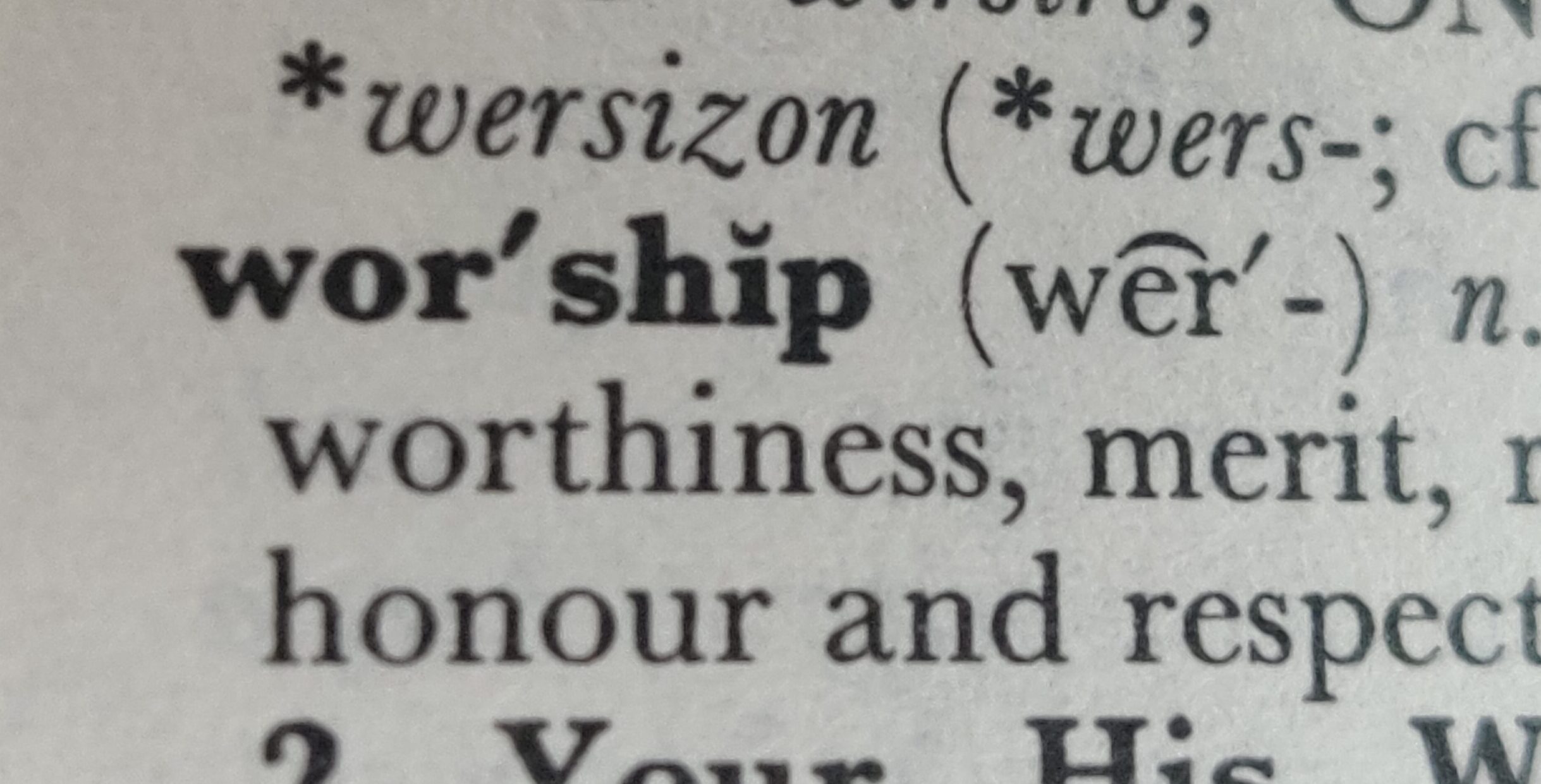Worship
A mystery of worship is that it isn't about us, but about God. But, God doesn't need our worship; we do. God isn't some insecure cosmic being, who waits for His worshippers to remind Him how awesome He is and how desperately they need Him before He decides to intervene. God never changes. But when we worship, we change. (Brad Kohring, Queensland Creative Pastor, Hillsong 2017)
Brad Kohring quotes a friend as saying:
‘The more we get on with celebrating who and what we are in Christ, the less consumed we will be by chaos and the more committed we will be to Christ-likeness in the world and for the world.’
Delesslyn A. Kennebrew writes on ‘ChristianToday.com’ that, ‘worship is not the slow song that the choir sings. Worship is not the amount you place in the offering basket. Worship is not volunteering in children’s church. Yes, these may be acts or expressions of worship, but they do not define what true worship really is. There are numerous definitions of the word worship. Yet, one in particular from Webster’s Dictionary (1828) encapsulates the priority we should give to worship as a spiritual discipline: Worship is to honour with extravagant love and extreme submission.’ (Delesslyn A. Kennebrew)

Worship and Services
Worship at Great Ayton Methodist Church involves the worship portfolio and the services team.
The lead steward for worship is involved in the planning the content of future services, agreeing the preaching programme and making proposals to the leadership team and church council on service format and arrangements.
Organising worship is an essential element of the operation of the church and involves many people including, the minister, church service stewards, local preachers, worship leaders, musicians, including organist and band members, and the technical team. Service stewards ensure all services including Sunday and special services such as funerals, weddings and baptisms, run correctly and smoothly. In doing this they rely on the support of communion and door stewards, the organist and band, the tech team, flowers arrangers, King’s Kids and crèche leaders as well as members of the coffee rota!
Worship is not confined to formal church services. All the activities of the church aim to be worshipful and aim to glorify God. More formal worship takes place in services on a Sunday as well as throughout the week in prayer meetings, house groups, children and young people’s groups and so on. Special services, including circuit services, healing services and times of quiet reflection take place from time to time as well.
Sunday Services
There are two main weekly services at Great Ayton Methodist Church.
The 9:00am service, held on the first and third Sunday of the month, is a more traditional service with hymns accompanied by the organ. The structure of the service will vary but will usually begin with a hymn, followed by bible readings, hymns, the sermon and prayers before ending with a final hymn. The service will conclude around 10.00 am.
Coffee is served in the hall after this service. This is an opportunity to meet other worshipers and people arriving for the 10.30 am service.
The 10:30am service, held every week, is less formal and more contemporary with a worship band including piano, guitars and drums and a longer time of teaching. Again, the structure of this service will vary but it will tend to proceed broadly as follows. The service will begin with the children present with a worship song before they are blessed and leave for their own session in King’s Kids. There may be another song and then the bible reading for the day will be read. There will then be a time of teaching until around 11.15 am when the service will move into a time of worship songs during which time the children will re-join the service. There will probably be some conversation or activity with the children before we have a time of prayer. The service will conclude with another session of worship songs, ending around 12.00 noon.
During this service King’s Kids (for children of primary school age and younger) has teaching and activities that follow the theme of the main service. A crèche is also available. Leaders will speak to you if you’re new or visiting with children to explain what will happen and to offer your children the opportunity to take part. Of course, they are welcome to remain in the service if you, or they, prefer.
Coffee is served again after the 10.30 am service.
From time to time there may be a Sunday evening service. This will be shown on a preaching plan and publicised ahead of time You can view this plan on the publications page of the Stokesley Methodist Circuit website. This preaching plan shows who is to preach at each service and is produced four times per year covering all churches in the Stokesley Circuit. A service of Holy Communion (see below) is held a number of times a quarter in each of the two services.
Each week we live-stream our 10.30am service to Youtube. We have been doing so since spring 2020 and this valuable service allows people to take part in worship if they are not able to come to our building that week and helps those who want to find out more about our services before the come for the first time.

A bit about Holy Communion
For two thousand years, the Church has continued a practice called communion, or depending on the traditions of different churches, the Lord’s Supper or the Eucharist.
Communion uses bread as a symbol for Jesus’ body and wine as a symbol for His blood. Jesus started the tradition of communion. He instructed His followers to use bread and wine to remember the sacrifice He was going to make when He died for our sins on the cross (1 Corinthians 11:23-26). Jesus called Himself ‘the bread of life’ which means that we’re nourished by Him, we survive because of Him, and He satisfies us when everything else leaves us empty (John 6:48-51). There’s a connection between our nearness to Jesus, believing in Him, and being fulfilled by Him (John 6:35).
Communion is important because it’s a command to remember. Jesus wants us to remember every time we taste bread and wine, and even when we sit at the tables in our own homes, that He is the one who provides all we need. He gives us the physical food that we need to survive and the spiritual nourishment we need to keep taking next steps with Him.
